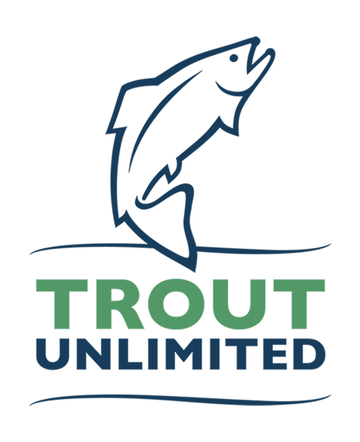
TN Coldwater Summit
Details
Our SUMMIT THEME for this year is: "Coldwater Ecosystems and Intense Precipitation Events in Appalachia: Stewardship Challenges and Opportunities".
SUMMIT DATE: Saturday 1 Feb 2025
SUMMIT LOCATION: Concord Yacht Club, 11600 South Northshore Dr., Knoxville, TN 37922
SUMMIT START TIME: 0930 (Light Breakfast will be provided)
SUMMIT ADJOURN TIME: 1615
PRELIMINARY SUMMIT AGENDA:
- 0900-0930 – Light Breakfast
- 0930 – Welcome - Ryan Turgeon (Chairman, Tennessee Council, Trout Unlimited)
- 0940 – Framing Remarks - Dr. Sherrell Greene (Science and Technology Advisor, Tennessee Council, Trout Unlimited)
- 0955 – Keynote Address – Dr. Andrew Joyner (Tennessee State Climatologist)
- 1055 – BREAK
- 1110 – Great Smoky Mountain National Park Perspectives – Matt Kulp, Supervisory Fishery Biologist
- 1150 – Cherokee National Forest Perspectives – Allison Williams, Forest Hydrologist
- 1230 – LUNCH
- 1310 – Tennessee Wildlife Resources Agency Perspectives – Jim Habera, Region IV Fisheries Program Manager
- 1350 – Tennessee Valley Authority Perspectives – Terry O'Quinn, Watershed Specialist
- 1430 – BREAK
- 1445 – Roundtable Panel Discussion (All Speakers, Moderated by Ryan Turgeon)
- 1545 – Summit Summary & Action Items (Dr. Greene)
- 1615 – Summit Adjourn (Ryan Turgeon)
Seven Framing Questions will guide our dialog during the Summit. Framing Questions 1-4 will be addressed by each of our Presenters in their formal presentations in the morning. Each presenter will provide a formal ~ 30 minute presentation addressing Framing Questions 1-4 from the perspective of their organization. Framing Questions 5-7 will guide our Roundtable Panel Discussion in the afternoon.
- What are the methods and metrics by which we traditionally quantify the effects of intense precipitation events and what did we know prior to the Helene Event about the impact of intense precipitation events on our coldwater systems? (This is the "Pre-Helene Context of Understanding".)
- What preliminary insights do we have about the impact of the Helene Event on our coldwater ecosystems and fisheries; e.g.
- post-event damage assessments
- effects on the river and stream morphology and related issues
- effects on the river's web-of-life and its coldwater fisheries
- effects on river/stream civil infrastructure (culverts, bridges, access/parking areas, etc.)?
- What is each agency/partner planning to do in 2025 to further evaluate or address the impacts of Helene and how can TCTU's members assist you?
- What are your preliminary thoughts about how can we better prepare for intense precipitation events?
- Destructive events often bring opportunities to "build back better." Do intense precipitation events present opportunities that would not otherwise exist? Are there opportunities to leverage and optimize post-event cleanup, recovery, and restoration activities for the long-term good of the river and ecosystem; e.g.,
- debris removal
- riparian zone restoration
- infrastructure (e.g., bridges, culverts, etc.) repair/replacement/new construction?
- Should, and if so, how, should the possibility of more frequent intense precipitation events affect today's coldwater conservation/stewardship investment priorities and strategies.
- Given implicit unavoidable uncertainties in regional climate prediction, what information does your agency need from the Climate Science Community, and what level of confidence in regional climate predictions do you need, for such climate predictions to be useful as input to your resource management and planning activities?
We hope to see you there,
Ryan Turgeon - TN Council Chair